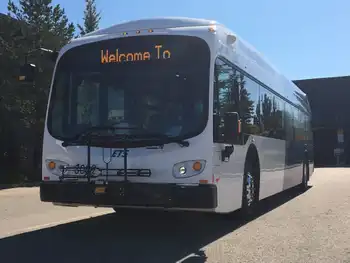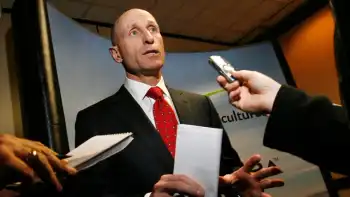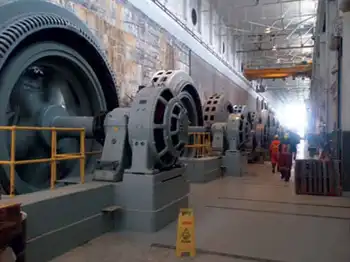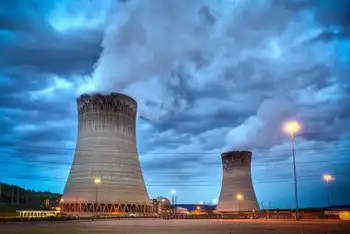Hydro One Leadership Shakeup unsettles investors as Ontario government ousts CEO and board, pressuring shares; analysts cite political and regulatory risk, stock volatility, trimmed price targets, and dividend stability at the regulated utility.
Key Points
An abrupt CEO exit and board overhaul at Hydro One, driving share declines and raising political and regulatory risk.
✅ Shares fall as CEO retires and board resigns under provincial pressure.
✅ Analysts cut price targets; warn of political, regulatory risks.
✅ New board to pick CEO; province consults on compensation.
Hydro One Ltd. shares slid Thursday with some analysts sounding warnings of greater uncertainty after the new Ontario government announced the retirement of the electrical utility's chief executive and the replacement of its board of directors.
After sagging by almost eight per cent in early trading on the Toronto Stock Exchange, following news that Q2 profit plunged 23% amid weaker electricity revenue, shares of the company were later down four per cent, or 81 cents, at $19.36 as of 11:42 a.m. ET.
On Wednesday, after stock markets had closed for the day, Ontario Premier Doug Ford announced the immediate retirement of Hydro One CEO Mayo Schmidt. He leaves with a $400,000 payout in lieu of post-retirement benefits and allowances, Hydro One said.
Doug Ford's government forces out Hydro One '$6-million man'
During the recent provincial election campaign, Ford vowed to fire Schmidt, who earned $6.2 million last year and whose salary wouldn't be reduced despite calls to cut electricity costs.
Paul Dobson, Hydro One's chief financial officer, will serve as acting CEO until a new top executive is selected.
Ford also said the entire board of directors of the utility would resign. Hydro One said a new board — four members of which will be nominated by the province — will select the company's next CEO, and the province will be consulted on the next leader's compensation.
A new board is expected to be formed by mid-August.
The provincial government is the largest single investor in Hydro One, holding a 47 per cent stake. The company was partly privatized by the former Liberal government in 2015, while the NDP has proposed to make hydro public again in Ontario to change course.
Doug Ford promises to keep Pickering nuclear plant open until 2024
In response to the government's move to supplant the utility's board and CEO, some analysts cautioned investors about too many unknowns in the near-term outlook, citing raised political or regulatory risks.
Analyst Jeremy Rosenfield of iA Securities cut his rating on Hydro One shares to hold from buy, and reduced his 12-month price target for the stock to $24 from $26.
Rosenfield said the stock is still a defensive investment supported by stable earnings and cash flows, good earnings growth and healthy dividend.
However, he said in a research note that "the heightened potential for further political interference in the province's electricity market and regulated utility framework represent key risk factors that are likely to outweigh Hydro One's fundamentals over the near term."
Potential challenge to find new CEO
Laurentian Bank Securities analyst Mona Nazir said in a research note that the magnitude of change all at once was "surprising but not shocking."
She said the agreement that will see Hydro One consult with the provincial government on matters involving executive pay could have an impact on the hiring of a new CEO for the utility.
"Given the government's open and public criticism of the company and a potential ceiling on compensation, it may be challenging to attract top talent to the position," she wrote.
Laurentian cut its rating on the Hydro One to hold and reduced its price target to $21 from $24.
Analysts at CIBC World Markets said investors face an uncertain future, noting parallels with debates at Manitoba Hydro over political direction.
"In particular, we are are concerned about the government meddling in with [power] rates," wrote Robert Catellier and Archit Kshetrapal in a research note, adding they believe the new provincial government is aiming for a 12 per cent reduction in customers' power bills.
CIBC reduced its price target on Hydro One's shares to $20.50 from its previous target of $24.
Related News












